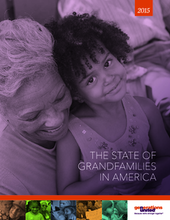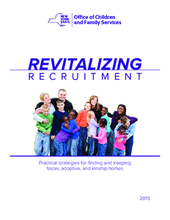Displaying 1911 - 1920 of 2221
The State of Grandfamilies in America 2015 identifies key state laws and policies designed to address barriers and to better support grandparents and other relatives raising children. The report also offers recommendations to help guide the development of supportive federal and state policies and services for grandfamilies.
Professor Robbie Gilligan discusses a “policy blind spot” in Ireland resulting from a lack of data collection on the education of children in the care system, including the percentage of those children who go on to university. Ireland recently launched a new National Plan for Equity of Access to Higher Education 2015-2019 to improve access to education for disadvantaged groups, but the new plan is silent on the educational needs for children in care.
The New Jersey Supreme Court announced that it will hear the case of a New Jersey indigent mother who lacked an attorney when when a judge ordered her 2-year-old daughter taken from her custody and placed with a “financially advantaged” foster family. The case will address whether some New Jersey parents are "too poor" to care for their children, whether they have a constitutional right to an attorney when their custody is being challenged in court, and whether the indigent mother should be allowed to visit her daughter even without custody.
This systematic review identified research studies examining factors associated with service use among kinship caregivers in the US using key search terms in five computerized bibliographic databases and four journals.
While data indicates that the use of corporal punishment by schools has declined significantly in recent years, the practice is still in use for tens of thousands of public school students in the United States. Many activists and parent groups are demanding that the practice be outlawed in schools.
The University of Chicago School of Social Service Administration (SSA), in collaboration with Chapin Hall, an independent policy research center affiliated with the University of Chicago, seeks candidates for the Harold A. Richman Postdoctoral Fellowship Program. This program is aimed at strengthening the intellectual and research qualifications of outstanding scholars interested in applied research careers focusing on child, youth, and family well-being.
According to the advocacy organization, First Focus, the U.S. Senate Finance Committee is planning to consider new legislation known as the Family First Act in January 2016. The legislation would direct investments at keeping children safe and supported at home and in family-like settings.
This study reports on the findings from a randomized control trial of a 10-week home visiting program, Promoting First Relationships® (Kelly, Sandoval, Zuckerman, & Buehlman, 2008), for a subsample of 43 reunified birth parents of toddlers that were part of the larger trial.
This guide, published by the New York State Office of Children and Family Services, provides a summary of promising practices currently used in recruitment and retention of foster/adoptive families.
Catholic Relief Services is seeking a qualified candidate for Project Director (PD) for the USAID funded Coordinating Comprehensive Care for Children (4Children) project.


